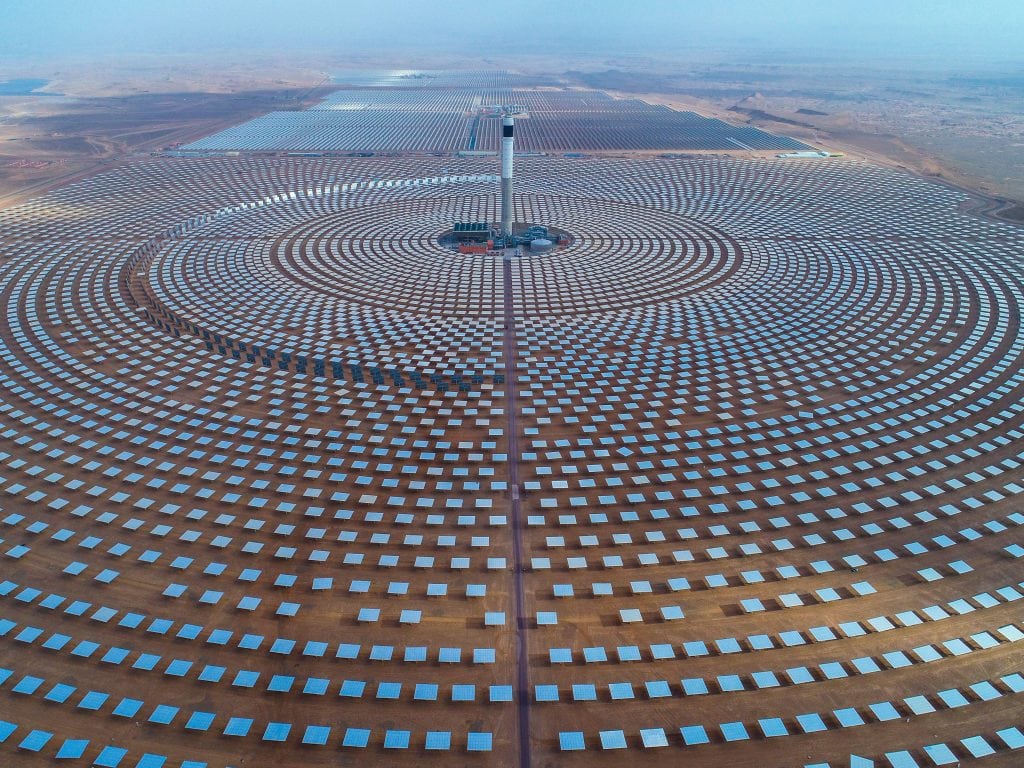From Climate Change to Climate Crisis: How Worried Should We Be?
Global View
Global temperatures are rising. Ice caps are melting. The past five years have been, collectively, the warmest years in modern records with 2018 having a temperature rise of 0.83 degrees Celsius compared to the 1951 to 1980 mean.[1]
The Paris climate conference came as a unanimous call for action against what scientists are now calling a global crisis. Representatives from 196 countries met in December 2015 out of which 184 submitted Nationally determined contributions (NDCs) to reduce national greenhouse gas emissions and adapt to climate change.[2]
Aiming to bring stakeholders and governments together to implement the Paris Agreement, Chile, which is to host the next UN Climate Change Conference COP25, appointed Gonzalo Muñoz—a business entrepreneur, social change-maker and the founder of TriCiclos—as Chile’s High-Level Climate Action Champion.[3]
While some countries are at extreme risk of getting ‘lost’ due to climate change, American President Donald Trump announced in 2017 that the United States will exit the agreement stating “the Paris accord will undermine our economy”.[4]
The question remains; is the global community adopting the right tools and measures to bring those commitments to action? Are we on track to achieving the promised change? Are we all acting responsibly as global citizens living on the same planet?
The past five years have been, collectively, the warmest years in modern records with 2018 having a temperature rise of 0.83 degrees Celsius compared to the 1951 to 1980 mean.

Regional View
The Middle East and North Africa (MENA) region has been greatly affected by climate change. To date, the highest temperature was recorded in Kuwait as 54°C. For decades now, Jeddah has seen annual floods, while the rising sea levels are slowly causing Alexandria to sink.
Meanwhile, the water levels of both the Nile Delta and the Dead Sea have significantly dropped, with the latter having an annual drop of about 1.2 metres, even though Jordan only contributes to about 0.07% of global greenhouse gas (GHG) emissions.[5]
The Max Planck Institute in Germany expects temperatures in the MENA regions to be 4°C higher by 2050 and many cities to become uninhabitable by 2100, if urgent climate action isn’t taken.[6]
Morocco became the second best performing country in the 2019 Climate Change Performance Index (CCPI). The country is currently home to the world’s largest solar plant, the Noor-Ouarzazate complex which has an area of about 3500 football fields and could power a city twice the size of Marrakesh.[7] [8]
Whether oil-producing or oil-importing, most countries in the MENA region are currently moving towards renewable energy as it is crucial in combating climate change. However, the region has a long way to go in terms of adaptation, monitoring and verification.
The Middle East and North Africa (MENA) region has been greatly affected by climate change. To date, the highest temperature was recorded in Kuwait as 54°C. For decades now, Jeddah has seen annual floods, while the rising sea levels are slowly causing Alexandria to sink.
Jordan is among the leading countries in the region when it comes to clean energy, enabling environment and investment attractions, with a vision to increase its renewable energy usage to 20% by 2021.
Jordan is Taking Action:
In line of its continued commitment to climate action, the Jordanian Council of Ministers recently issued a Climate Change Regulation for 2019 aiming to coordinate national efforts among stakeholders and undertake measures to mitigate climate change and adapt to its impacts. The regulation also came as a legislative framework for outlining and implementing Jordan’s NDCs as well as integrating them into the national plans.[9]
Jordan is among the leading countries in the region when it comes to clean energy, enabling environment and investment attractions, with a vision to increase its renewable energy usage to 20% by 2021.[10] [11]
In addition to issuing the National Climate Change Policy for 2013–2020, the Ministry of Environment set forth a Green Growth Plan for Jordan that aims to enhance Jordan’s socio-economic and environmental performance by creating green jobs, innovations and startups that could attract green financing. Quoting the former Minster of Environment, HE Dr Yaseen Khayyat “amidst unprecedented economic and environmental challenges facing our world, green growth is not a choice but the only way forward for Jordan and the rest of the counties around the globe”.[12] Such legal and policy frameworks enable various actors and sectors to prioritize, design and implement projects that would not only help Jordanian communities adapt to climate change impacts but also support local economic development through new market opportunities.
At the Royal Scientific Society (RSS), we are proud to be one of the major climate action supporters and advisors to the Government of Jordan and its citizens. Jordan’s First Biennial Update Report was prepared by the RSS in cooperation with the Ministry of Environment and the United Nations Development Programme (UNDP) in 2017, the report studied different aspects of climate change in Jordan so that proper measures can be taken.[13]
Recently, the RSS developed a Monitoring, Reporting and Verification (MRV) system for Jordan, in cooperation with the Ministry of Environment and the World Bank. The system, which will be used to access climate finance and improve trust amongst parties as well as ensure the compliance of different entities, is currently being tested by the RSS for quality assurance before it is officially launched.
Join the Call for Action
Visit: https://www.un.org/en/climatechange/take-action.shtm
References
[1] 6 February 2019. [Online]. Available: 2018 fourth warmest year in continued warming trend, according to NASA, NOAA.
[2] U. Nations, “Nationally Determined Contributions (NDCs),” 2019 United Nations Framework Convention on Climate Change, 2019. [Online].
Available: https://unfccc.int/focus/indc_portal/items/8766.php#eq-1. [Accessed 2019].
[3] U. Nations, “Chile Announces New High-Level Champion,” 2019 United Nations Framework Convention on Climate Change, 11 April 2019.
[Online]. Available: https://unfccc.int/news/chile-announces-new-high-level-champion.
[4] B. Chakraborty, “Paris Agreement on climate change: US withdraws as Trump calls it ‘unfair’,” Fox News, 01 June 2017.
[5] D. Broom, “How the Middle East is suffering on the front lines of climate change,” 05 April 2019. [Online]. Available:
https://www.weforum.org/agenda/2019/04/middle-east-front-lines-climate-change-mena/.
[6] M. o. F. Affairs, “Climate Change Profile Jordan,” Ministry of Foreign Affairs of the Netherlands, Netherlands, 2018.
[7] G. 2018, “Climate Change Performance Index,” 2019.
[8] N. Shields and J. Masters, “Morocco in the fast lane with world’s largest concentrated solar farm,” CNN, 6 February 2019.
[9] و. ا. ا. (بترا), “مجلس الوزراء يوجه الصناديق الحكومية لتأجيل أقساط المواطنين خلال رمضان,”
24 04 2019. [Online]. Available: http://petra.gov.jo/Include/InnerPage.jsp?ID=99252&lang=ar&name=news.
[10] ش. خ. ل. و. الالكتروني, “زواتي: 1270 ميغاواط من الطاقة المتجددة,” شركة خبرني للاعلام والاعلان
الالكتروني , 21 May 2019.
[11] R. C. f. R. E. a. E. Efficieny, “AFEX EE 2017 report: Remarkable progress in the Arab Energy Efficiency markets and unprecedented wave of subsidy
reforms in the region,” Regional Center for Renewable Energy and Energy Efficieny, 2018.
[12] M. o. Environment, “A National Green Growth Plan for Jordan,” Ministry of Environment, Amman, Jordan, 2017.
[13] M. o. Environment, “Jordan’s First Biennial Update Report to The United Nations Framework Convention on Climate Change,” Ministry of Environment, Amman, Jordan, 2017.
